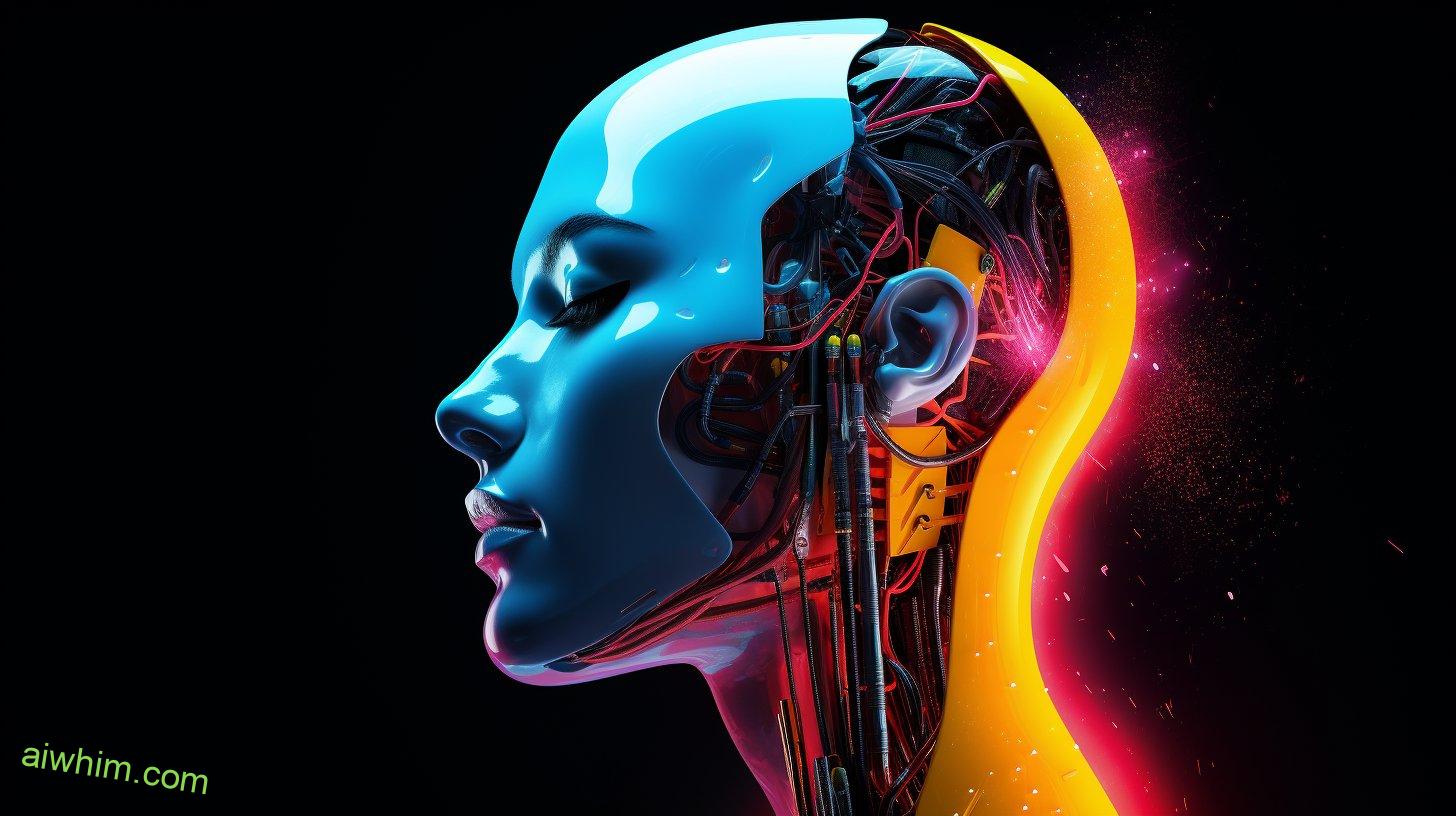In the realm of information security, the rise of artificial intelligence (AI) has brought about significant changes and potential implications.
This article explores the question of whether AI will render information security analysts redundant. By examining the current role of information security analysts and how AI is transforming the landscape, we can evaluate the benefits and challenges that arise from this technological advancement.
Additionally, this article discusses AI tools and technologies available to information security analysts, as well as strategies for overcoming resistance to AI adoption in this field.
Ultimately, it considers the importance of collaboration between AI systems and human analysts and highlights the need for ongoing training and education in an era increasingly influenced by AI technology.
Key Takeaways
- AI adoption in information security has raised concerns about the future role of information security analysts.
- AI advancements have the potential to automate tasks traditionally performed by analysts, but collaboration between AI systems and human analysts is crucial.
- AI enhances threat detection and mitigation capabilities, streamlines vulnerability management processes, and saves time with automated compliance assessments.
- Ongoing training and education are necessary for information security analysts to adapt to AI technology and enhance their skill sets.

The Rise of Artificial Intelligence in Information Security
The increasing adoption of artificial intelligence (AI) has led to discussions about its potential impact on the role of information security analysts. AI advancements have made significant strides in recent years, leading to concerns about the future of job market and whether AI will render information security analysts redundant.
AI has shown great promise in automating various tasks traditionally performed by information security analysts. Machine learning algorithms can quickly analyze vast amounts of data and identify patterns or anomalies that may indicate a potential cyber threat. This ability to process and analyze data at an unprecedented speed has the potential to revolutionize the field of information security.
However, it is important to note that while AI may automate certain aspects of the job, it is unlikely to completely replace human analysts. Information security requires not only technical expertise but also critical thinking, problem-solving skills, and an understanding of organizational context. Human analysts are able to interpret complex situations, make decisions based on contextual knowledge, and adapt their strategies as new threats emerge.
Furthermore, the rapid advancement of AI technology necessitates continuous learning and adaptation on the part of information security analysts. Rather than rendering them redundant, AI advancements present an opportunity for professionals in this field to embrace new technologies and enhance their skill sets.

The Current Role of Information Security Analysts
One important aspect to consider when examining the current role of information security analysts is their involvement in safeguarding digital assets and preventing unauthorized access. Information security analysts play a crucial role in the protection of sensitive data and ensuring the integrity of computer systems. As technology continues to advance, their responsibilities and challenges are also evolving.
Some of the current challenges faced by information security analysts include:
- Increasingly sophisticated cyber threats: With advancements in technology, cybercriminals are constantly finding new ways to breach security measures. Analysts must stay updated with the latest threats and develop effective strategies to counter them.
- Rapid technological advancements: The constant evolution of technology brings new devices, software, and systems that need to be secured. Analysts must adapt quickly to these changes and ensure that all vulnerabilities are identified and addressed.
- Compliance with regulations: Organizations must comply with various industry-specific regulations regarding data protection and privacy. Information security analysts have the responsibility to ensure that these regulations are met through robust security measures.
The evolving responsibilities of information security analysts include:
- Incident response management: In addition to preventive measures, analysts now play a critical role in responding promptly and effectively to incidents such as data breaches or system compromises.
- Proactive threat intelligence: Analysts need to gather intelligence on emerging threats, analyze trends, and identify potential vulnerabilities before they can be exploited by malicious actors.
- Security awareness training: Analysts may be involved in educating employees about best practices for maintaining secure digital environments, including how to recognize phishing attempts or avoid downloading malicious software.

How AI Is Transforming the Information Security Landscape
AI’s transformative impact on the information security landscape is evident through its ability to detect and mitigate sophisticated cyber threats, adapt to rapid technological advancements, and ensure compliance with industry-specific regulations.
One area where AI has significantly contributed to enhancing information security is in AI-driven threat intelligence. With the increasing complexity and scale of cyber threats, traditional approaches to threat detection and mitigation have become inadequate. AI technologies, such as machine learning algorithms, enable organizations to analyze vast amounts of data in real-time, allowing for the identification of potential threats that may have gone unnoticed by human analysts.
Furthermore, automation plays a crucial role in vulnerability management within the context of information security. Vulnerability management involves identifying vulnerabilities in an organization’s systems or networks and implementing measures to address them promptly. By utilizing AI-powered automation tools, organizations can streamline vulnerability scanning processes and prioritize remediation efforts based on risk levels. This not only saves time but also increases efficiency by eliminating manual tasks that are prone to errors.
In addition to threat intelligence and vulnerability management, AI technologies also facilitate compliance with industry-specific regulations pertaining to information security. Organizations operating in highly regulated industries such as finance or healthcare must adhere to stringent guidelines regarding data protection and privacy. AI-powered solutions can assist in automating compliance assessments by continuously monitoring systems for any deviations from regulatory requirements.

The Benefits of AI in Information Security
Utilizing AI in information security offers numerous advantages, including enhanced threat detection and mitigation capabilities, streamlined vulnerability management processes, and automated compliance assessments.
Enhanced Threat Detection and Mitigation Capabilities: AI-powered systems have the ability to analyze vast amounts of data in real-time, enabling them to identify potential threats more quickly and accurately than traditional methods. Machine learning algorithms can detect patterns and anomalies that may indicate malicious activity or vulnerabilities in a system. This helps organizations stay one step ahead of cyberattacks and respond effectively to mitigate risks.
Streamlined Vulnerability Management Processes: AI can automate the process of identifying vulnerabilities in an organization’s infrastructure or software systems. By continuously scanning for weaknesses, AI can prioritize vulnerabilities based on their severity level, allowing security teams to focus their efforts on addressing critical issues first. This streamlines the vulnerability management process by eliminating manual tasks and reducing human error.
Automated Compliance Assessments: Compliance with industry regulations is a crucial aspect of information security. AI can be used to automate compliance assessments by comparing an organization’s practices against relevant standards and regulations. This not only saves time but also ensures consistency and accuracy in assessing adherence to compliance requirements.
Overall, incorporating AI into information security practices has numerous benefits. It enhances threat detection capabilities, streamlines vulnerability management processes, and automates compliance assessments. These advantages enable organizations to better protect their sensitive data from cyber threats while improving operational efficiency. As technology continues to advance, leveraging AI will become increasingly important for maintaining robust information security measures in an ever-evolving digital landscape.

Challenges Faced by Information Security Analysts in the AI Era
The rapid advancement of artificial intelligence poses significant challenges for information security analysts in adapting their skills and expertise to effectively address emerging threats and vulnerabilities. The increasing complexity and sophistication of AI-powered attacks require security professionals to continually update their knowledge and techniques.
One of the major challenges faced by information security analysts is keeping up with the rapid pace of AI development, as attackers leverage AI technologies to automate and enhance their malicious activities.
AI-driven attacks have far-reaching implications for information security analysts. Traditional methods of threat detection and prevention may no longer be effective against AI-generated threats, which can adapt and evolve rapidly. This necessitates a shift in focus from reactive approaches to proactive strategies that can anticipate and mitigate potential risks posed by AI systems.
Another challenge arises from the inherent biases embedded within AI algorithms, which can lead to discriminatory outcomes or false positives/negatives in threat detection. Information security analysts must grapple with addressing these biases while ensuring fairness, transparency, and accountability in their decision-making processes.
Furthermore, the shortage of skilled cybersecurity professionals exacerbates the challenges faced by information security analysts in the era of AI. As organizations increasingly rely on AI technologies for defense purposes, there is a growing demand for experts who possess both technical knowledge of AI systems as well as deep understanding of cybersecurity principles.

The Impact of AI on Threat Detection and Prevention
The impact of artificial intelligence on threat detection and prevention can be observed through its ability to automate and enhance malicious activities, necessitating a proactive approach in developing strategies to anticipate and mitigate potential risks.
- AI-powered technologies have the potential to revolutionize threat detection by analyzing vast amounts of data at unprecedented speeds, enabling organizations to identify patterns and anomalies that may indicate cyber threats. This enhanced threat intelligence allows for early detection and response, reducing the risk of successful attacks.
- However, the use of AI in threat detection also poses challenges in terms of data privacy. As AI algorithms require access to large datasets for training purposes, concerns arise regarding the protection of sensitive information. Organizations must implement robust security measures to ensure that personal data is adequately safeguarded throughout the AI-powered threat detection process.
- Additionally, the increasing sophistication of AI-based cyberattacks presents a significant challenge for traditional security defenses. Adversaries can leverage AI algorithms to develop sophisticated malware capable of evading traditional security measures. Therefore, organizations need to continuously update their defense mechanisms to keep up with evolving threats.
In conclusion, while artificial intelligence has undoubtedly enhanced threat detection capabilities through its ability to automate processes and analyze large volumes of data, it also brings forth challenges related to data privacy and the constant evolution of cyber threats. To effectively harness the benefits of AI in threat prevention, organizations must prioritize implementing robust security measures while ensuring compliance with privacy regulations. A comprehensive approach that combines human expertise with AI technologies is crucial in maintaining effective cybersecurity posture in this era dominated by rapid technological advancements.
Keywords: threat intelligence, data privacy

Can AI Replace Human Judgment in Information Security
Transitioning from the previous subtopic, which discussed the impact of AI on threat detection and prevention, we now examine the question of whether AI can replace human judgment in information security. While AI has made significant advancements in recent years, it is important to consider its limitations when evaluating its potential to replace human expertise.
One limitation of AI is its inability to fully comprehend context and intent. Although algorithms can be trained to identify patterns and anomalies, they lack the ability to understand the underlying meaning behind them. Human experts possess a unique cognitive capacity that allows them to interpret complex situations and make informed decisions based on their understanding of context.
Furthermore, AI systems heavily rely on data for training and decision-making processes. However, if these systems are fed with biased or incomplete data, their outputs may also reflect such biases or inaccuracies. This highlights the importance of human expertise in critically analyzing and validating the results generated by AI algorithms.
Additionally, humans possess ethical judgment and moral reasoning abilities that are currently beyond the capabilities of AI systems. Information security often involves making difficult decisions involving privacy concerns or balancing competing interests. Human experts bring a level of ethical awareness and accountability that cannot be replicated by machines alone.
In conclusion, while AI has shown great promise in various aspects of information security, it is important to recognize its limitations when considering whether it can replace human judgment. The unique cognitive abilities, contextual understanding, critical thinking skills, and ethical considerations provided by human experts remain invaluable in ensuring effective information security practices.
Thus, rather than replacing humans entirely with AI systems, there should be an emphasis on augmenting human expertise with intelligent technologies for improved outcomes in information security.

The Role of Machine Learning in Information Security
Machine learning algorithms have become indispensable tools in information security due to their ability to analyze large volumes of data and identify patterns that may indicate potential threats. These algorithms play a crucial role in threat detection and enable organizations to proactively respond to incidents. The use of machine learning in information security has revolutionized the field, allowing for more efficient and effective incident response.
The role of machine learning in threat detection can be summarized as follows:
- Pattern recognition: Machine learning algorithms are trained on vast amounts of historical data, enabling them to recognize patterns that humans might overlook. By analyzing network traffic, system logs, and user behavior, these algorithms can identify anomalous activities that could potentially be indicators of a cyberattack.
- Real-time monitoring: With the continuous growth of digital networks and the increasing complexity of cyber threats, it is essential for organizations to have real-time monitoring systems in place. Machine learning algorithms can analyze incoming data streams in real-time and quickly detect any suspicious or malicious activities.
- AI-powered incident response: Machine learning algorithms not only assist in threat detection but also play a vital role in incident response. By automating certain tasks such as triaging alerts, categorizing incidents, and suggesting remediation steps, these algorithms enable security analysts to focus their attention on more complex issues.

Enhancing Incident Response With AI Technology
The previous subtopic highlighted the role of machine learning in information security. Now, we will delve into how incident response can be enhanced with AI technology, specifically through incident response automation and AI-powered threat intelligence.
Incident response is a critical aspect of information security, involving the identification and mitigation of security incidents. Traditional incident response processes often rely on manual analysis and decision-making by human analysts. However, advancements in AI technology have led to the development of automated solutions that can significantly improve incident response efficiency and effectiveness.
Incident response automation involves leveraging AI algorithms to automate various stages of the incident response lifecycle, such as detection, triage, containment, eradication, and recovery. By automating these tasks, organizations can accelerate their incident response times while reducing the risk of human error.
Furthermore, AI-powered threat intelligence enables organizations to gather real-time information about emerging threats from diverse sources and analyze it for actionable insights. This allows security teams to proactively detect potential threats and vulnerabilities before they can cause significant damage.
While some may argue that AI technology could render information security analysts redundant, it is important to note that AI is not meant to replace human analysts entirely. Instead, it serves as a valuable tool to augment their capabilities by automating repetitive tasks and providing them with timely intelligence.

The Future of Information Security Analysts in the AI Age
In the AI age, the future of information security analysts is influenced by the integration of advanced technologies into their workflow. The impact of automation on information security analysts is a topic of concern for many professionals in this field. While some may fear that AI will render them redundant, others believe that it will enhance their job prospects in the AI era.
The job prospects for information security analysts in the AI era can be understood by considering several factors:
- Increased Efficiency: Automation and AI can assist information security analysts in handling large volumes of data more efficiently. Machine learning algorithms can identify patterns and anomalies in real-time, allowing analysts to focus on critical issues and make informed decisions quickly.
- New Skill Requirements: As technology evolves, information security analysts will need to acquire new skills to adapt to the changing landscape. They will need to understand how AI systems work and possess knowledge in areas such as machine learning, data analysis, and programming languages.
- Human Expertise: Despite advancements in automation, human expertise remains crucial in ensuring effective cybersecurity measures. Information security analysts possess critical thinking abilities and domain-specific knowledge that cannot be replicated by machines alone. Their role will evolve from traditional monitoring tasks to strategic decision-making and risk assessment.
Overall, while automation may streamline certain aspects of an information security analyst’s role, it is unlikely to render them redundant. Job prospects for these professionals are expected to remain strong as organizations continue to prioritize cybersecurity in an increasingly digital world driven by AI technologies.

Ethical Considerations in AI-powered Information Security
Ethical considerations surrounding the integration of AI-powered technology in information security are a significant concern for professionals in this field. As AI continues to advance and become increasingly prevalent, its potential implications on privacy and ethics raise important questions.
One of the key ethical implications of using AI in information security is the potential invasion of privacy. AI-powered systems have the ability to collect and analyze vast amounts of data from various sources, which can include personal information. This raises concerns about how this data is being used and whether individuals’ privacy rights are being respected. For example, if an AI system detects a potential security threat by analyzing an individual’s online activities, it may inadvertently violate their right to privacy.
Another ethical consideration is the potential for bias in AI algorithms used in information security. These algorithms are trained on large datasets that may inherently contain biases, such as racial or gender biases. If these biases are not properly addressed and corrected, they could lead to discriminatory practices in identifying potential threats or determining access privileges. This poses a risk to individuals’ freedom and equality.
Additionally, there is a concern about the accountability and transparency of AI-powered information security systems. The complex nature of AI algorithms makes it difficult to understand how they arrive at their decisions or predictions. This lack of transparency raises questions about who should be held responsible if these systems make errors or engage in unethical behavior.

AI Tools and Technologies for Information Security Analysts
AI tools and technologies have become indispensable resources for information security analysts, allowing them to efficiently detect and respond to potential threats. These advancements in AI have significantly enhanced the capabilities of information security analysts in safeguarding sensitive data and mitigating cyber risks.
The following points highlight the key benefits of AI tools for information security analysts:
- Improved threat detection: AI-powered tools can analyze vast amounts of data and identify patterns that may indicate malicious activities or vulnerabilities. This enables information security analysts to proactively detect potential threats before they can cause significant harm.
- Enhanced incident response: AI algorithms can automate certain aspects of incident response, such as triaging alerts, prioritizing incidents based on severity, and suggesting appropriate remediation actions. This streamlines the workflow for information security analysts, allowing them to focus their expertise on critical tasks.
- Augmented decision-making: AI tools can provide valuable insights by correlating various sources of data and generating actionable intelligence. This assists information security analysts in making informed decisions regarding risk management strategies and allocating resources effectively.
Moreover, AI-powered technologies can continuously learn from new threats and adapt their defenses accordingly, ensuring that organizations stay ahead of evolving cyber threats. However, it is important to note that while AI tools offer numerous advantages, they are not meant to replace human expertise entirely. Information security analysts still play a crucial role in interpreting results provided by these tools, validating findings through manual analysis, and understanding the context within which potential threats exist.

Overcoming Resistance to AI Adoption in Information Security
Resistance to the adoption of AI in information security can be attributed to concerns regarding job displacement and the reliance on automated systems for critical decision-making processes. However, overcoming this resistance is crucial in order to harness the full potential of AI in enhancing information security measures.
To address these concerns, organizations need to implement strategies that not only highlight the benefits of AI but also ensure that human expertise is integrated with AI capabilities.
One way to overcome resistance is by emphasizing the role of AI as a complementary tool rather than a substitute for information security analysts. By positioning AI as a means to augment their capabilities, organizations can alleviate fears of job displacement and emphasize the importance of human judgment and decision-making. Highlighting how AI can assist in handling routine tasks, data analysis, and threat detection allows information security analysts to focus on more strategic initiatives such as risk assessment and incident response.
Another challenge in adopting AI in information security lies in ensuring transparency and accountability. It is important for organizations to have mechanisms in place that allow for explainability and auditing of AI algorithms. This helps build trust among stakeholders by providing insight into how decisions are made by these systems.
Furthermore, addressing concerns about privacy and data protection is essential when implementing AI solutions. Organizations must establish robust data governance frameworks that prioritize user consent, anonymization techniques, secure storage, and access controls.

Collaboration Between AI and Human Analysts in Information Security
Collaboration between human analysts and intelligent systems in the field of information security can enhance overall threat detection capabilities and aid in the development of proactive defense strategies. The combination of human expertise and artificial intelligence (AI) technology has the potential to revolutionize incident response within the information security domain. By working together, human analysts and AI systems can leverage each other’s strengths to improve their collective ability to detect, analyze, and respond to security threats.
The benefits of collaboration between human analysts and AI systems in information security are numerous. Firstly, AI algorithms can analyze vast amounts of data at a speed that is beyond human capability. This enables them to quickly identify patterns, anomalies, and potential threats within large datasets. Human analysts can then utilize this information to make informed decisions based on their expertise and contextual knowledge.
Secondly, human analysts can provide critical context and reasoning that AI systems currently lack. They possess an understanding of the complex landscape of cybersecurity threats, including emerging trends and attack techniques. This contextual knowledge allows them to interpret the output generated by AI systems more effectively.
Lastly, collaboration between humans and AI can lead to improved incident response times. With real-time monitoring capabilities offered by AI systems, potential threats can be detected early on, allowing for prompt action by human analysts. Additionally, AI systems can automate certain routine tasks like log analysis or malware detection, freeing up time for human analysts to focus on more complex issues.

Training and Education for Information Security Analysts in the AI Era
Training and education programs need to adapt in order to equip information security analysts with the necessary skills and knowledge to effectively navigate the evolving landscape of technology and data analysis in the AI era. As artificial intelligence (AI) continues to advance, it presents both training challenges and ethical implications for information security analysts.
One of the main training challenges is keeping up with the rapid pace of technological advancements. Information security analysts must continually update their skills to understand and counter new cyber threats that are becoming increasingly sophisticated. Traditional training methods may not be sufficient in addressing these challenges, as they often focus on outdated technologies or do not adequately cover emerging areas such as machine learning and deep learning algorithms.
Additionally, ethical implications arise when utilizing AI technologies in information security analysis. The use of AI raises concerns about privacy, bias, and potential misuse of personal data. For example, AI algorithms may inadvertently perpetuate biases present in training data or compromise individual privacy through excessive data collection. Therefore, it is crucial for information security analysts to receive comprehensive education on ethical considerations when implementing AI tools.
To address these challenges and ensure effective training for information security analysts in the AI era, educational institutions should develop updated curricula that incorporate courses on emerging technologies like AI, machine learning, and data analysis. Furthermore, practical hands-on experience should be emphasized alongside theoretical knowledge to prepare analysts for real-world scenarios.

Frequently Asked Questions
What Are the Potential Ethical Concerns Related to the Use of AI in Information Security?
Potential ethical concerns related to the use of AI in information security include data privacy issues, as AI systems require access to large amounts of sensitive data. Additionally, bias detection is crucial to ensure fair and unbiased decision-making processes.
How Can Information Security Analysts Overcome Resistance to Adopting AI Technologies?
Overcoming resistance to AI implementation in information security requires strategies that address concerns about job redundancy, lack of expertise, and potential ethical issues. Awareness campaigns, training programs, and clear communication can help alleviate these concerns.
What Are Some Key Collaboration Strategies Between AI and Human Analysts in Information Security?
Collaboration techniques between AI and human analysts in information security involve integrating AI systems with the expertise of human analysts to enhance threat detection and response. This collaboration ensures a more effective and efficient approach to safeguarding sensitive information.
How Does AI Technology Enhance Incident Response in the Field of Information Security?
Incident response automation, powered by AI technology, enhances the field of information security by enabling efficient and accurate threat detection. This advancement complements the work done by information security analysts, rather than rendering them redundant.
What Kind of TrAIning and Education Is Required for Information Security Analysts in the AI Era?
Training requirements for information security analysts in the AI era include a strong foundation in computer science and cybersecurity, as well as specialized knowledge of AI technologies and their potential risks. Education should emphasize critical thinking, problem-solving, and ethical decision-making.

Conclusion
In conclusion, the rise of artificial intelligence (AI) in information security has undoubtedly transformed the landscape and poses challenges for information security analysts. While AI brings numerous benefits such as enhanced threat detection and response capabilities, it also raises concerns about job redundancy.
However, rather than rendering analysts redundant, AI should be seen as a tool to augment their skills and improve efficiency. Collaboration between AI and human analysts is crucial in order to leverage the strengths of both, while training and education will ensure that analysts can adapt to the evolving AI era.







